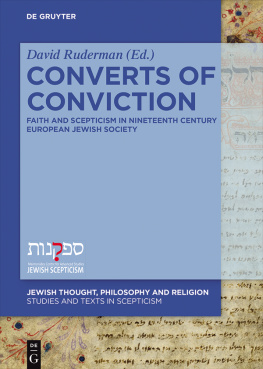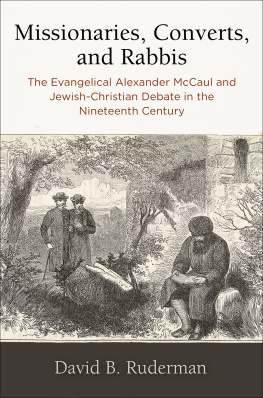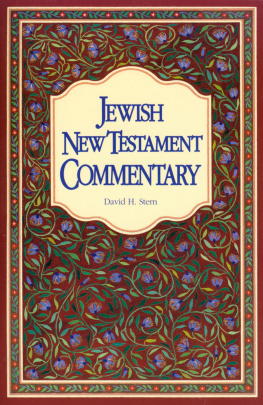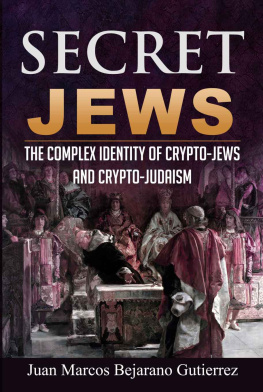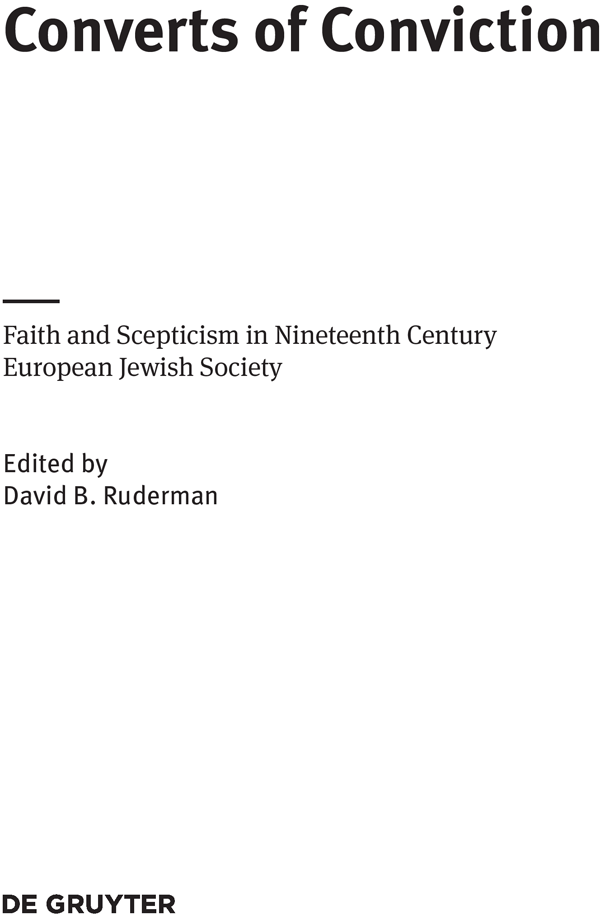David B. Ruderman - Converts of Conviction: Faith and Scepticism in Nineteenth Century European Jewish Society
Here you can read online David B. Ruderman - Converts of Conviction: Faith and Scepticism in Nineteenth Century European Jewish Society full text of the book (entire story) in english for free. Download pdf and epub, get meaning, cover and reviews about this ebook. year: 2017, publisher: De Gruyter, genre: Religion. Description of the work, (preface) as well as reviews are available. Best literature library LitArk.com created for fans of good reading and offers a wide selection of genres:
Romance novel
Science fiction
Adventure
Detective
Science
History
Home and family
Prose
Art
Politics
Computer
Non-fiction
Religion
Business
Children
Humor
Choose a favorite category and find really read worthwhile books. Enjoy immersion in the world of imagination, feel the emotions of the characters or learn something new for yourself, make an fascinating discovery.
- Book:Converts of Conviction: Faith and Scepticism in Nineteenth Century European Jewish Society
- Author:
- Publisher:De Gruyter
- Genre:
- Year:2017
- Rating:4 / 5
- Favourites:Add to favourites
- Your mark:
Converts of Conviction: Faith and Scepticism in Nineteenth Century European Jewish Society: summary, description and annotation
We offer to read an annotation, description, summary or preface (depends on what the author of the book "Converts of Conviction: Faith and Scepticism in Nineteenth Century European Jewish Society" wrote himself). If you haven't found the necessary information about the book — write in the comments, we will try to find it.
The study of Jewish converts to Christianity in the modern era has long been marginalized in Jewish historiography. Labeled disparagingly in the Jewish tradition as meshumadim (apostates), many earlier Jewish scholars treated these individuals in a negative light or generally ignored them as not properly belonging any longer to the community and its historical legacy. This situation has radically changed in recent years with an outpouring of new studies on converts in variegated times and places, culminating perhaps in the most recent synthesis of modern Jewish converts by Todd Endelman in 2015.
While Endelman argues that most modern converts left the Jewish fold for economic, social, or political reasons, he does acknowledge the presence of those who chose to convert for ideological and spiritual motives. The purpose of this volume is to consider more fully the latter group, perhaps the most interesting from the perspective of Jewish intellectual history: those who moved from Judaism to Christianity out of a conviction that they were choosing a superior religion, and out of doubt or lack of confidence in the religious principles and practices of their former one. Their spiritual journeys often led them to suspect their newly adopted beliefs as well, and some even returned to Judaism or adopted a hybrid faith consisting of elements of both religions. Their intellectual itineraries between Judaism and Christianity offer a unique perspective on the formation of modern Jewish identities, Jewish-Christian relations, and the history of Jewish skeptical postures.
The approach of the authors of this book is to avoid broad generalizations about the modern convert in favor of detailed case studies of specific converts in four distinct localities: Germany, Russia, Poland, and England, all living in the nineteenth- century. In so doing, it underscores the individuality of each converts life experience and self-reflection and the need to examine more intensely this relatively neglected dimension of Jewish and Christian cultural and intellectual history.
David B. Ruderman: author's other books
Who wrote Converts of Conviction: Faith and Scepticism in Nineteenth Century European Jewish Society? Find out the surname, the name of the author of the book and a list of all author's works by series.

